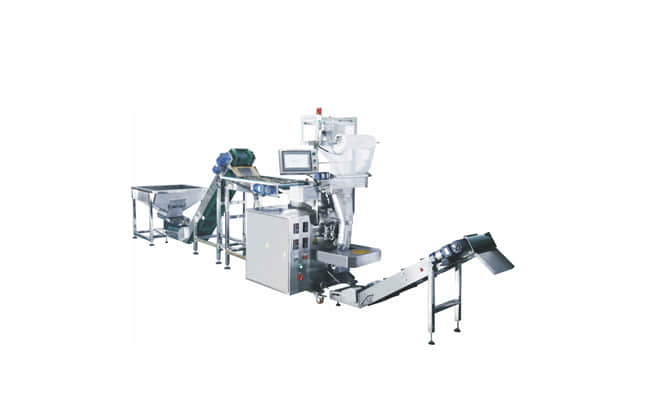
Date | 2023-05-15 21:12:44
Automatic packing machines have revolutionized the manufacturing industry. They are machines that automatically pack products into containers or packaging materials with minimal human intervention. These machines have been developed to improve efficiency, increase production, and reduce costs in the manufacturing process. In this article, we will explore the advancements made in automatic packing machines and their impact on the manufacturing industry.
Firstly, the current generation of automatic packing machines is much more efficient than their predecessors. They are equipped with advanced sensors, control systems, and software that can analyze data in real-time. This means that they can make adjustments to the packing process on the fly, reducing downtime and increasing productivity. Additionally, these machines are equipped with more precise and faster actuators, which allow them to handle a wider range of products, materials, and packaging formats.
Secondly, the latest automatic packing machines are designed with modular and scalable architectures. This means that they can be easily customized to meet specific requirements of different manufacturing processes. They can also be easily upgraded with new features or technologies as they become available, ensuring that they remain relevant and competitive in the market.
Another significant advancement in automatic packing machines is the integration of artificial intelligence and machine learning technologies. These technologies enable the machines to learn from their past experiences and optimize their packing processes accordingly. This results in improved efficiency, accuracy, and reliability, reducing the risk of errors and increasing overall production throughput.
Furthermore, automatic packing machines are now equipped with advanced safety features that ensure safe operation in the manufacturing environment. They are designed to meet the latest safety standards and regulations, such as CE and UL, ensuring that they are safe for both the operators and the products being packed. These machines are also equipped with sensors and alarms that can detect and respond to any potential safety hazards, preventing accidents and ensuring continuous operation.
Finally, automatic packing machines are becoming more environmentally friendly. Manufacturers are incorporating sustainable materials and processes into the machines, reducing waste and energy consumption. They are also designed to be more energy-efficient, reducing their carbon footprint and contributing to a greener manufacturing process.
In conclusion, the advancements made in automatic packing machines have revolutionized the manufacturing industry. They have improved efficiency, increased production, reduced costs, and improved safety. As these machines continue to evolve, we can expect further advancements in the coming years that will further optimize the manufacturing process.In addition to the above-mentioned advancements, there are some emerging trends in automatic packing machines that are worth mentioning. One such trend is the integration of Internet of Things (IoT) technology into these machines. IoT allows automatic packing machines to be connected to a network of other machines and systems, enabling them to share data and communicate with each other. This can result in a more streamlined and efficient manufacturing process, where machines can coordinate with each other in real-time and optimize their operation based on real-time data.
Another emerging trend is the use of robotic technology in automatic packing machines. Robotic packing machines can perform complex packing tasks with a high degree of accuracy and speed, resulting in even greater efficiency and productivity. They can also handle a wider range of products and packaging formats, making them more versatile than traditional automatic packing machines.
Finally, there is a growing demand for automatic packing machines that are easy to use and maintain. Manufacturers are designing machines with user-friendly interfaces and simplified maintenance procedures, reducing the need for specialized technicians to operate and maintain them. This makes these machines more accessible to smaller manufacturers who may not have the resources to hire specialized personnel.
In conclusion, automatic packing machines have come a long way in terms of technological advancements, and they continue to evolve at a rapid pace. With the integration of IoT, robotics, and user-friendly interfaces, these machines are becoming even more efficient, versatile, and accessible. They are playing a crucial role in the manufacturing industry, enabling manufacturers to meet the demands of a rapidly changing market. As such, it is clear that automatic packing machines will continue to play a vital role in the manufacturing industry in the years to come.
